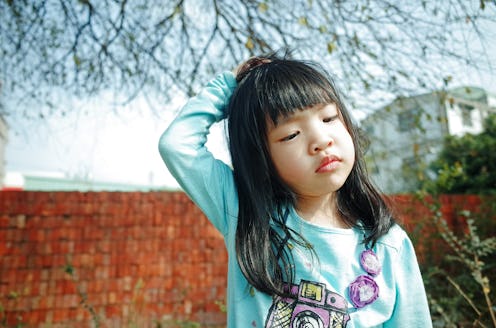Life
Should Kids Still Call Adults By Their Last Names?

Last Friday, Danielle Larkins posed a seemingly simple question in The Washington Post: What happened to kids addressing adults by their last names? Larkins, who tries her best to imply that she’s not a stick-in-the-mud, goes on to say that the concept of children addressing adults as Mr. or Mrs. So-And-So — as most of us did back in the day — is still necessary, because it "not only displays respect but an acknowledgment of authority, one that establishes boundaries." Counterpoint: Nah.
As Larkins wrote in her WP piece:
To this day (even at the age of 33) I address my friends’ parents by their last names, as do most of my friends. Because they are not our peers but our elders – and we were taught to show respect to our elders. So what changed? Why are children today taught differently?
I can see calling your friends parents by Mr. and Mrs. when you're a child, or even a teen, but once you have a mortgage and a kid or two, you're a grown ass woman. Your friends parents are your peers, not your babysitters. Maybe Larkins and I are from completely different planets, but here's my take on why my kid will call you by your first name, unless you specifically tell him not to:
1. Not Every Adult Is An Authority
Let’s first acknowledge that not all adults are authority figures. My son knows that I’m the boss; along with his father, his teacher, his karate instructor, and whoever is babysitting him. But that’s far from every adult. What about our neighbor across the street? He’s not in charge of my kid just because he’s an adult. Simply having the right to vote doesn’t automatically give you dominion over all children.
And what about teens? I’ve seen plenty of occasions in the service industry where a teen holds a higher title than an adult. When I was managing a big box store in my youth, should I have asked “John, Beth, and Mr. Snow” to come to their registers? Seems a big ridiculous, no?
2. Respect Is A Privilege, Not A Right
As for Larkins' point about respect, it’s important to remember that it’s a two-way street. You can’t expect anyone, including children, to respect you if you don’t respect them. And that’s why I raised my son to call me by my first name. They way I saw it, if everyone from my dentist to the lady at Starbucks is allowed to call me by my name, why isn’t my son? Shouldn’t I have more love and respect for him than anyone? He’s supposed to be closer to me than anyone else, yet he doesn’t have the right to speak my name? It really doesn’t make sense, when you think about it.
3. What Defines An "Elder," Anyway?
Once you've reached the age of 33, other adults are absolutely your peers. Just because someone's been adulting for longer than you doesn't make them any more of an adult. Should an 18-year-old call a 20-year-old "Mrs. Jones"? Should a 50-year-old call an 80-year-old Mr. Anderson?
4. Honorifics Are Fraught As Hell
Think quick – what would you have your kid call me? Miss Rose? Mrs. Rose? Ms. Rose? Dr. Rose? You have a 75 percent chance of offending me; better be careful. The correct answer is Ms. Rose, technically, because I'm not a doctor or a Ph.D., and my marital status is not my identity, but really, for goodness' sake, just call me Jenn.
Now imagine how you'd introduce your kid to someone who was gender non-conforming. Do you see where I'm going with this?
So that's why, unless you tell me otherwise, I’ll introduce you to my son by name. Cool?
Images: Aikawa Ke, Chicago 2016, Alper Çuğun, Victor, zeevveez/Flickr